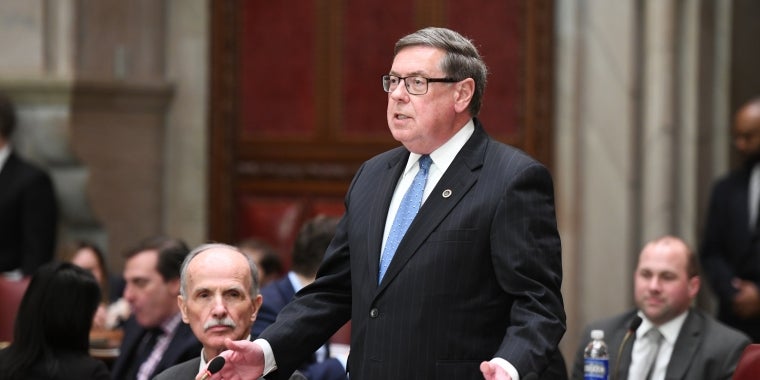
Workers’ Comp Bill Clears Senate
The New York State Senate has approved legislation to significantly reform the state’s workers’ compensation system. The bill (S.3322) would reduce employer costs, which are among the highest in the nation, by ten to fifteen percent and increase benefits for injured workers for the first time in more than a decade. The bill reflects an agreement announced last month by the senate, the assembly, and the governor.
"Real workers’ compensation insurance reform was one of my goals this year, and after years of effort, we have won results for the people of the state," said Senator Jim Seward (R-C-I, Oneonta), Chairman of the Senate Insurance Committee. "This legislation caps years of effort by the Senate Majority to win reforms that benefit both employers and injured workers and ultimately, help move our economy forward by reducing a major impediment to job creation."
Highlights of the legislation include the following:
> Reduce employer costs for workers’ comp insurance premiums by ten to fifteen percent, an estimated savings of nearly $1 billion.
> The maximum weekly benefit for injured workers will be increased from $400 to $500 in the first year, $550 in the second year, $600 in the third year, and to two-thirds of the average weekly wage in New York in the fourth year. Once the maximum benefit reaches two-thirds of the average weekly wage, the maximum benefit will be indexed annually.
> The minimum weekly benefit will be increased from $40 to $100.
> A safety net will be created for disabled workers to help them get back to work and more assistance will be available for people classified as more than 80 percent disabled.
> Penalties and sanctions will be increased to crack down on workers’ compensation fraud committed by businesses and by employees.
> A costly loophole (the Second Injury Fund) that allows some insurance carriers to avoid paying claims will be closed, resulting in further reduction in special assessment costs to employers in New York State.
> Innovative programs will be established to get workers prompt medical treatment and help them return to work, in addition to premium credits for employers who create one or all of the following programs: a program to get injured employees back to work, a worker safety program, or a drug and alcohol program.
In addition to the reforms addressed in the legislation, a legislative task force will work with the superintendent of Insurance, the Department of Labor and the Workers’ Compensation Board to pursue additional reforms and make recommendations about additional legislation.
####



